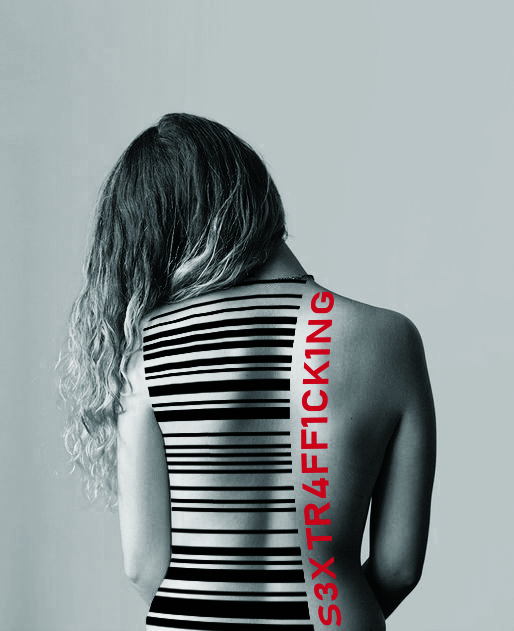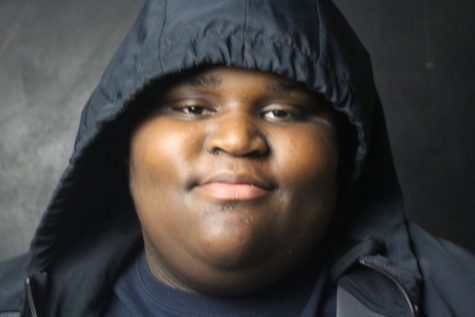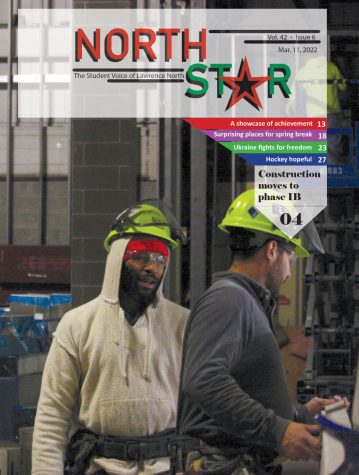Modern Day slavery
Sex trafficking, a form of human trafficking, is become more prevalent as the number of cases per year increases.
Sex trafficking is a form of modern day slavery. It is an organized crime where human beings are treated as possessions to be exploited for sexual acts. It is an international crime. Many people only associate sex trafficking with busy cities and often forget that seemingly quiet places like Indiana are affected as well.
In March, police arrested an Indianapolis man for trafficking a 16-year-old girl. This August, police raided a home in Ft. Wayne and discovered 12 girls, one as young as 14, who were being trafficked. In October, an Indianapolis man was convicted for sex trafficking a 15 year old in a case that began with an undercover operation in July 2017. There has been an alarming increase of human trafficking cases in Indiana. From 2007 to 2018, there have been a total of 600 cases.
Sex traffickers recruit their victims in a multitude of ways. They kidnap and force them into it. They threaten them. They coerce them by lying and promising a better future for their victims or by supplying them with drugs to feed their addiction. Traffickers stalk the victim and memorize their routine and vulnerabilities to find the best way to get to them.
“They watch them. They follow them. For a few days. A few weeks. A few months. They target them to see if they can pick up on their vulnerability,” said Cynthia Schwomeyer, a crisis specialist who works with human trafficking victims in hospitals in Indiana.
The victims of sex trafficking crimes can most closely be compared to an abusive relationship, according to pyschology teacher Larry Leonhardt.
“It’s like being trapped in an abusive relationaship where you really do feel like you’re trapped. So, how do you cope with that? It’s also very, very demeaning. No, it’s literally dehumanizing. Now you have become a commodity,” Leonhardt said.
Sex trafficking shares similar dynamics of power and control between the attacker and the victim found in domestic violence. Although these victims are put down over and over again, they will often protect their abusers because they have been conditioned by them to believe that they deserve it or that they cannot survive without them.
“The women will protect the person, the man who’s controlling them, and that is common because they get brainwashed and beat down and all sorts of things done to them,” Schwomeyer said.
Contrary to cinematic interpretations, the majority of these victims are not locked away in some far away basement. They are most often found in public places, and yet they do not not run. Often sex traffickers find and utilize the vulnerabilities of their victims to take advantage of them. They are either being threatened by their abusers, trapped by an addiction, fear arrest or believe they have nowhere else to go. They are trapped and feel as though they cannot escape the situation.
“But when they’re trafficked, they are often times moved. They’re taken to another location, so they don’t know anybody outside of the situation and what their resources are. Everything becomes unknown,” Leonhardt said.
Being sexually trafficked has had long lasting effects on these victims. It can be taxing on their bodies and their psychological stability. They are deprived of everything besides the bare necessities, the places they are familiar with and the ones they love. They have been dehumanized by the traffickers and have been stripped of their identity.
“Cognitively and behaviorally, if a person had escaped from a situation and they have been dehumanized, they have been conditioned to feel as if they have no power, they have no influence, they have no autonomy or cognizance,” Leonhardt said.
These victims are not in control of their lives. They have become a living puppet and somebody else is behind the curtain pulling their strings and dictating their entire way of living. Their finances, house keys, meals, attire, their bodies are at the mercy of someone else. They are forced to be isolated from their friends and family in order for them to become completely dependent on their trafficker for survival. Disobedience is met with harsh consequences for these victims.
“That can challenge the authority and control that the trafficker has over his woman. Then they would get beaten and sometimes they’ve been murdered. I knew a lot of women who were murdered,” Schwomeyer said.
The victims do not have much say in their actions. They have been conditioned to believe everything and do anything that their captor has told them. It is not their choice. They are completely dependent on their trafficker for everything and unconsciously they know that they need their only way of survival is to latch onto their abductor and comply with everything they are told.
“People who get trafficked and controlled are not bad people. It’s horrible and scary out there. Don’t judge [them],” Schwomeyer said.
The victims are reluctant to step forward and admit what has been done to them. They have been convinced by their abusers that the authorities will not understand and will arrest them for their involvement. Many are ashamed of what has happened and fear the social repercussions that may come with revealing the truth. Those who do come forward have a long road of recovery ahead of them, but there are ways that may prove useful to help them move forward and help them cope with their situation.
“Counseling and being there for them. To help them I would go to interviews. Like if there was something going on and the vice wanted to interview them about maybe if the guys tried to kill them or something. I would ask if she knew and was willing to go. Every single time they said and every single time they asked me to go with them. I would go and be supportive,” Schwomeyer said.
Everybody needs to pay attention to their surroundings and be cautious. Although women are sex trafficked more often, men are not exempt. There are numerous cases where both men and women have been drugged at parties and taken away. It is important to be surrounded by trusted people and to have a safe place in case a person feels they are unsafe. And if something does feel off, escape to that place and with those trusted people.
“This day and age, everybody needs to be alert. Be very very aware of their surroundings. Don’t trust, you’ve got to be careful of who you trust. If something feels off here, then chances are it probably is. Always listen to your gut instinct and go to some safety person to tell about it,” Schwomeyer said.
Call the National Human Trafficking Hotline or 911 if you suspect that you are being followed or if a friend fears they are in danger. If you believe that someone may be exhibiting signs of being sex trafficked, call the hotline so that they can be freed from their captors and so they can escape the situation.














